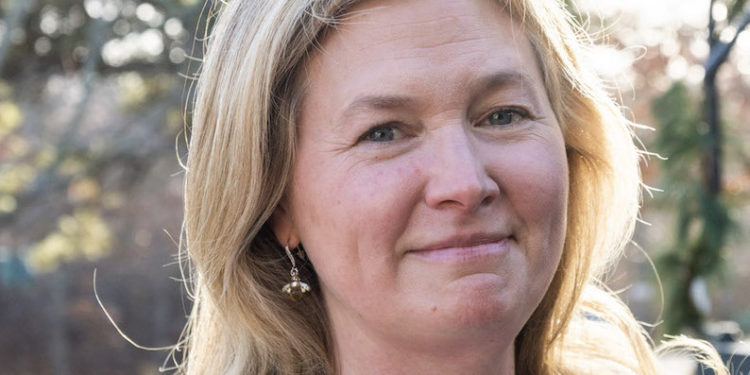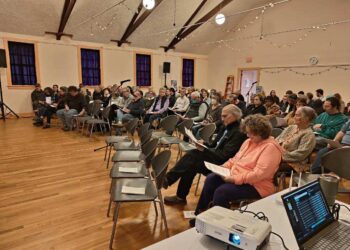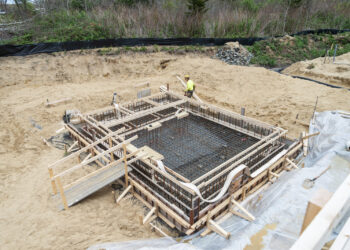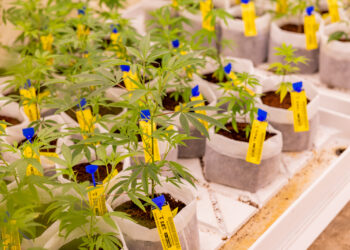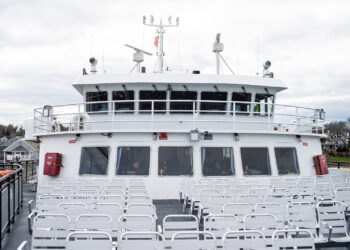Chimpanzees and gorillas share over 95 per cent of their DNA with humans, a fact Kelly O’Meara is now thinking a lot about in her new job as executive director of the Pan African Sanctuary Alliance (PASA). Especially as these close relatives are in danger.
With current trends, between 84 and 95 per cent of the chimpanzee habitat could be lost within 30 years, Ms. O’Meara said.
“This is where it’s really a horrible thing to think about a future without them,” Ms. O’Meara said.
Ms. O’Meara, who moved to Chilmark from Maryland with her family five years ago, has been on the job for two weeks, she said. She spent the last 22 years at Humane Society International, where she led the organization’s anti-dog meat campaign and worked to decrease the street-dog population around the world by finding homes for them.
“There’s a lot of parallels, but I’m now working in primate protection and wildlife conservation, which is a totally new arena for me,” she said.
Her role at PASA — the largest coalition of wildlife centers and sanctuaries in Africa — is a return to her early days when she was part of a small team at the Humane Society, she said. While the 23 sanctuaries employ over 800 people in 13 African countries, PASA itself has a staff of eight.
“There’s a staff person in Europe, one in Africa, three on the West Coast, there’s three of us on the East Coast of the [United States], so we’re all over the place,” she said.
Animal trafficking is the fourth largest criminal trade in the world, Ms. O’Meara said. In Africa, poachers often kill older primates for bushmeat, which can be sold at a higher price than chicken or beef, and sell off young ones to private zoos or other abusive owners. Compounding the problem is deforestation, which has allowed poachers to invade places where primates used to be insulated from the outside world.
This is where PASA comes in. The 23-member sanctuaries care for primates who were previously trafficked or abused and protect habitats so they have a safe place to be re-released.
“It’s now to the point where it’s a dire situation,” Ms. O’Meara said. “We need to be addressing the source of the issue, and that’s what we do.”
Ms. O’Meara said always knew she wanted to work with animals. She received a degree in wildlife conservation from the University of Massachusetts at Amherst. After a brief stint as a veterinary technician, she joined the Humane Society’s budding international arm, which at the time had only three other employees. The job allowed her to travel the world, bringing together disparate organizations into a network of groups fighting to protect animals.
At PASA she will be once again working across time zones. At present, however, her travel schedule has been limited due to the virus. Pandemic permitting, she has a few upcoming trips planned to Kenya, Uganda, Malawi and Morocco for site visits and conferences.
In the meantime, staying on the Island hasn’t been a bad thing. Her family immediately felt at home when they moved here, she said. They lived in a rural area on Maryland’s eastern shore, which in itself felt like living on an Island. Her husband James, who is president and chief executive officer at the Martha’s Vineyard Bank, is an avid sailor who has always lived near the water.
“We’re very happy we made the move,” she said.
Working remotely also gives Ms. O’Meara the flexibility to be there for her two daughters, an eighth grader and first grader at the West Tisbury School. She is also able to preside over the family’s two dogs, cat, guinea pig and four chickens.
“Our pet sitter is always calling it our small farm,” she said. “Our chickens are free roaming and have very strong personalities, so they’re very much a part of the family.”


